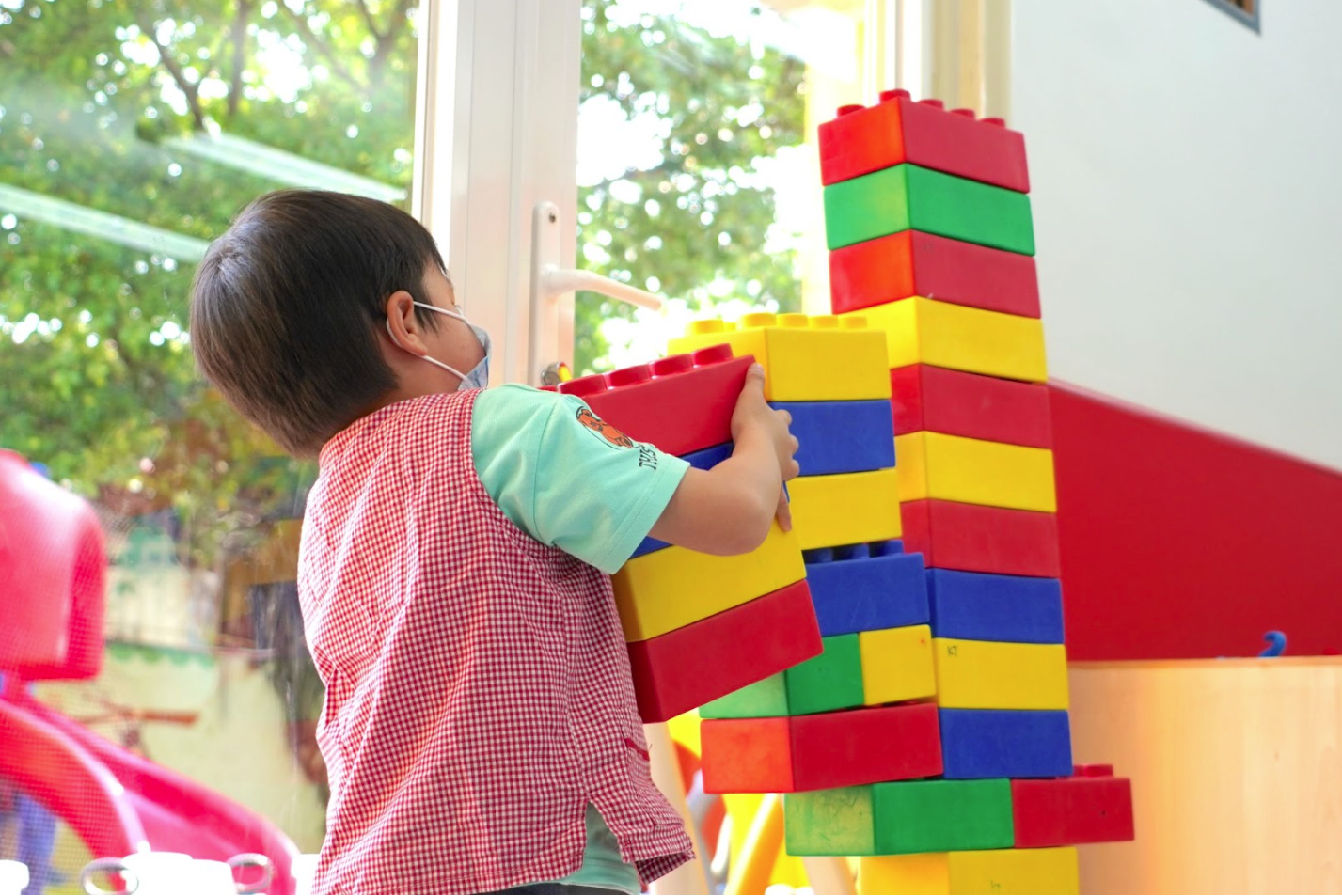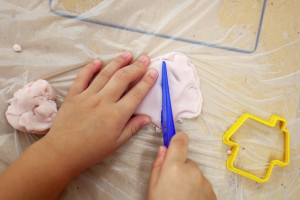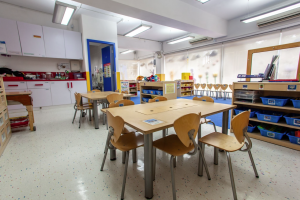Choosing a kindergarten is no easy feat, and knowing that there are many different teaching methods and approaches only makes it more complicated. However, it’s useful to know the main approaches to make an informed decision for your child, and one such approach is known as Montessori education. The Montessori approach has been used all over the world for over 100 years due to the numerous benefits that have been demonstrated in research. This article will answer important questions like what exactly is Montessori Education, what are its benefits, and what a Montessori approach in a kindergarten looks like.
What is Montessori Education?
In a nutshell, Montessori education is all about “following the child”. This means letting children learn in a self-directed way at their own pace, exploring their own interests, all with the guidance of knowledgeable teachers. A teacher’s role is not so much to instruct but to observe each child, find out their unique interests, strengths, and weaknesses, and provide gentle guidance and tools to let the child reach the final goal. This is in contrast to rote learning approaches where children follow fixed curricula and are expected to passively take in knowledge. By allowing children to determine their own learning path, Montessori education aims to help children develop an intrinsic motivation for learning, self-sufficiency, critical thinking, and social responsibility.
What are the core principles of the Montessori Method?
To see if a school truly follows the Montessori philosophy, you can check to see if they adhere to these 10 core Montessori principles.
Respect for the child
This means deconstructing some traditional views that children are helpless, passive learners, but instead viewing them as active learners who should have the freedom to make choices, ready to learn, and able to problem-solve.
The absorbent mind
According to Montessori philosophy, children from birth to around six years old are characterized as having an ‘absorbent mind’. During this time, they have an increased ability to take in information from their experiences and environment, which makes it a prime time for learning.
Sensitive periods
Montessori sensitive periods refer to specific periods of a child’s development when they are highly receptive and have heightened ability to learn specific skills. These periods are characterized by an intense focus and eagerness to learn in specific areas like language, movement, sensory exploration, and more.
Whole child development
Part of the Montessori approach is recognizing the importance of holistic development. This means placing equal emphasis on academics, life skills, social-emotional skills, and physical skills to ensure a well-balanced education.
Individualized learning
Montessori education is not a one-size-fits-all approach. It recognizes and respects each child’s unique learning styles, interests and abilities to tailor a program that is optimal for that specific child, instead of making them conform to a standardized curriculum.
Prepared environment
The Montessori classroom is carefully designed to meet the needs of children at each stage of development. Everything is child-friendly and accessible to the children, such as having child-sized furniture, and has a variety of activities for them to explore.
Freedom within limits
In a Montessori classroom, children are given the opportunity to make their own decisions and move around as they please, as long as they are working towards the intended learning objectives and are not disruptive to others. For example, they may be learning fine motor skills using a puzzle, but they can choose to work on the table or the floor.
Hands-on learning
Central to Montessori education is allowing children to learn in a hands-on manner. This means that children are actively participating in the learning process rather than passively listening to instructions. It’s also important to provide children with age-appropriate learning materials that they can explore.
Mixed-age classrooms
One unique aspect of Montessori classrooms is that there is a range of ages in a single class (i.e. 3-6 years). Younger children can learn from older children through observation, while older children have an opportunity to practice leadership skills and gain a sense of responsibility.
Auto-education
Under the Montessori approach, children are seen as being capable and willing to learn independently given the right materials, environment, and guidance. This means that they can choose what to learn, how to learn, and how long to spend learning.
Why the Montessori approach is important for development
The Montessori approach is known for its benefits not just inside the classroom but also on children’s overall development.
Promotes independence
From being able to choose what to work on to deciding how long they want to work on it, children are encouraged to gain a sense of independence, develop their own ideas and learn from their mistakes rather than relying on an adult to tell them what to do.
Fosters creativity
Because of the freedom that is afforded to children under Montessori education, they have more opportunities to express their creativity through how they approach problems, use materials, and interact with their environment.
Encourages a love for learning
Children who receive a Montessori education are more likely to enjoy the learning process because they are encouraged to explore and discover their own interests. This is a characteristic that they will carry with them throughout their lives.
Develops social and emotional skills
Because the Montessori approach encourages freedom to move around the classroom, children have many opportunities to interact with peers, which can help develop their social and emotional skills. They have opportunities to learn to share, take turns, communicate their thoughts and feelings, and more.
Teaches self-care skills
Children are taught practical life skills from an early age, such as learning to dress and undress, use the potty, make their bed, and brush their teeth. Not only are these self-care skills important for day-to-day tasks, they are also important for practicing fine-motor skills, executive function, and more.
How Tutor Time’s program incorporates the Montessori method
While there are clearly many benefits to the Montessori approach, at Tutor Time, we selectively pick what we think are the most important principles and incorporate them into our curriculum and classroom environment.
Tutor Time’s Montessori-inspired Curriculum
- Individualized learning: Tutor Time places great emphasis on catering to each child’s abilities and interests. That’s why we’ve developed the Cycle of Intentional Planning. Teachers create individualized lesson plans for each child to meet their individual needs.
- Whole-child development: While academics is an important part of our curriculum, we focus on holistic development through teaching children social and emotional skills in our Creating Character Program, incorporating health and wellbeing in our curriculum through GrowFit, and supporting children through Positive Behavior Support.
- Prepared environment: Tutor Time’s classrooms are designed to be age-appropriate and child-safe in every way possible. In our Nursery and Kindergarten classrooms, we have direct access to child-friendly washrooms to encourage independence, play areas with age-appropriate materials, and child-sized furniture.
- Developing a love for learning: Central to Tutor Time’s curriculum is equipping children to be successful learners in the future. That means learning how to learn, how to be engaged and active students, and how to develop their interests.
Tutor Time is not a purely Montessori school, but we do believe that many of the Montessori approaches have real benefits. Additionally, we also incorporate Howard Gardner’s Theory of Multiple Intelligences along with Rudolf Steiner’s Waldorf approach into our proprietary curriculum.
Conclusion
If there was a single quote to sum up the Montessori method of teaching, it might be: “The goal of early childhood education should be to activate the child’s own natural desire to learn.” – Dr. Maria Montessori. This idea of inspiring curiosity and a will to discover encapsulates the Montessori principles and is also what guides a Montessori preschool. At Tutor Time, you will find that this idea resonates strongly with our approach, whether in our curriculum or the way our teachers guide a lesson. Consider visiting our school for a guided tour or browsing our website to see if Tutor Time’s Montessori-inspired curriculum is right for your child.


